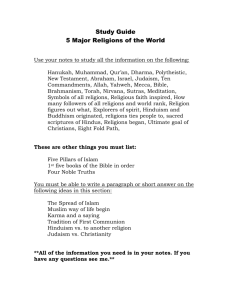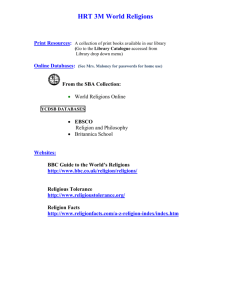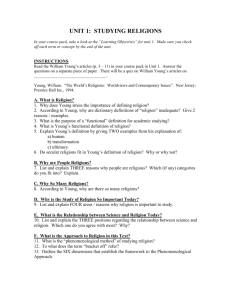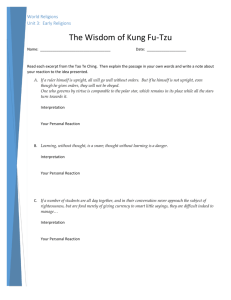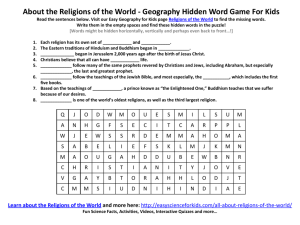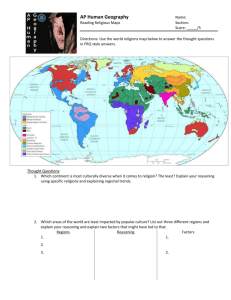RSD 1201
advertisement
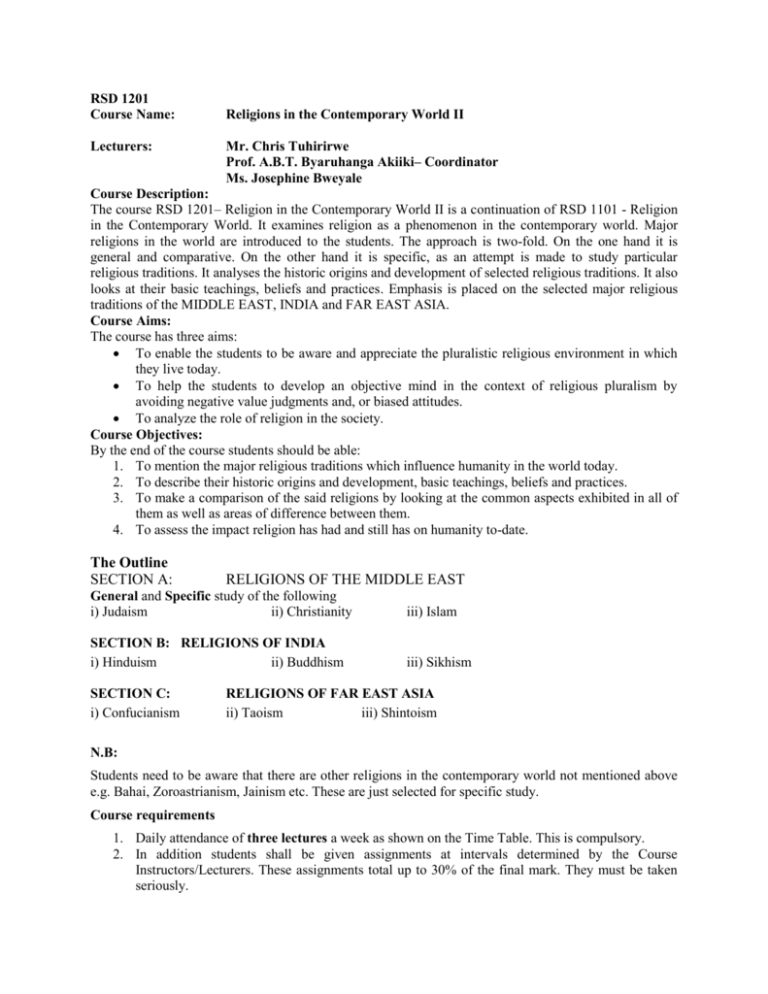
RSD 1201 Course Name: Lecturers: Religions in the Contemporary World II Mr. Chris Tuhirirwe Prof. A.B.T. Byaruhanga Akiiki– Coordinator Ms. Josephine Bweyale Course Description: The course RSD 1201– Religion in the Contemporary World II is a continuation of RSD 1101 - Religion in the Contemporary World. It examines religion as a phenomenon in the contemporary world. Major religions in the world are introduced to the students. The approach is two-fold. On the one hand it is general and comparative. On the other hand it is specific, as an attempt is made to study particular religious traditions. It analyses the historic origins and development of selected religious traditions. It also looks at their basic teachings, beliefs and practices. Emphasis is placed on the selected major religious traditions of the MIDDLE EAST, INDIA and FAR EAST ASIA. Course Aims: The course has three aims: To enable the students to be aware and appreciate the pluralistic religious environment in which they live today. To help the students to develop an objective mind in the context of religious pluralism by avoiding negative value judgments and, or biased attitudes. To analyze the role of religion in the society. Course Objectives: By the end of the course students should be able: 1. To mention the major religious traditions which influence humanity in the world today. 2. To describe their historic origins and development, basic teachings, beliefs and practices. 3. To make a comparison of the said religions by looking at the common aspects exhibited in all of them as well as areas of difference between them. 4. To assess the impact religion has had and still has on humanity to-date. The Outline SECTION A: RELIGIONS OF THE MIDDLE EAST General and Specific study of the following i) Judaism ii) Christianity iii) Islam SECTION B: RELIGIONS OF INDIA i) Hinduism ii) Buddhism iii) Sikhism SECTION C: i) Confucianism RELIGIONS OF FAR EAST ASIA ii) Taoism iii) Shintoism N.B: Students need to be aware that there are other religions in the contemporary world not mentioned above e.g. Bahai, Zoroastrianism, Jainism etc. These are just selected for specific study. Course requirements 1. Daily attendance of three lectures a week as shown on the Time Table. This is compulsory. 2. In addition students shall be given assignments at intervals determined by the Course Instructors/Lecturers. These assignments total up to 30% of the final mark. They must be taken seriously. 3. There shall also be the final examination at the end of the semester graded at 70%, 4. Students are also advised to do intensive library research to enrich themselves in the course. The Reading List/Bibliography 1. Nielsen, N.C. (el al); Religions of the World. 2. Harding; World Religions 3. Fellows, W.J. Religions, East and West. 4. Hitti, P; History of the Arabs 5. Ninian Smart; The Religions Experience of Mankind (3rd Ed) 6. Lewis M. Hopfe; Religions of the World (4th Ed) 7. J.B. Noss; Man’s Religions 8. Barret, D; World Christian Encyclopedia 9. The Holy Bible (RSV) 10. The Holy Qu’ran 11. M.R. Ahmad – The Philosophy of the teaching of Islam 12. Kasozi – Introduction to Islam 13. Zaener – Hinduism 14. Hans Kung – The Church 15. John Bright – Covenant and Promise 16. John Bright – The History of Israel 17. Robin Keely (Ed) – Handbook of Christian Beliefs Other relevant literature (students are advised to check sections in departmental (Book Bank) and main libraries)

